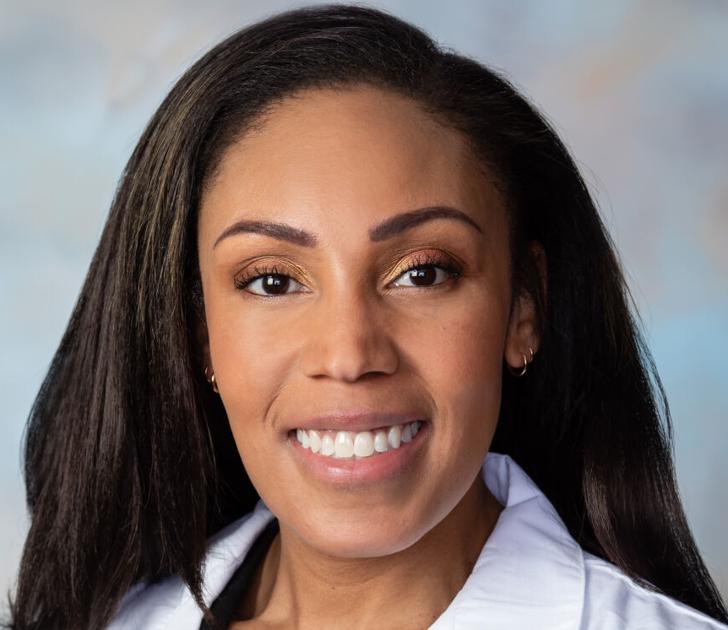
With so many distractions this year, it would be easy to understand if many women have forgotten about regular breast self-exams and formal screenings. However, staying on track with those measures now could pay dividends down the line.
“What we see is that even skipping a little time could leave us finding cancer that has progressed,” said Dr. Shaunda Katrise Grisby, a breast surgical oncologist at Ochsner Lafayette General. “I know there are a lot of important things happening right now, but we don’t want to get into a situation where we don’t find the cancer early.”
Even under normal circumstances, Grisby said it isn’t unusual for a woman to detect a lump or abnormality, but wait several weeks or months before bringing it to a doctor’s attention. But the best course of action is to schedule an appointment as soon as possible. Besides lumps, Grisby said other abnormalities may include new discharge, skin depressions or areas where the skin is tugging in an odd way.
Most women should conduct a self-exam once a month, she added. It’s normally easiest for women to do an exam in the shower. Remember to take your time, and if needed, set a reminder so it stays top of mind. It should be known that there is no evidence that performing self-breast exams regularly in average risk women helps detect cancer early. However, women should be familiar with their breasts to better detect when a change does occur.
“You don’t want to sit on things that are new and that you haven’t seen before,” Grisby said. “You know your body and if you see something that doesn’t seem right, it’s best to get it checked out. Cancer is always the biggest concern, but it could be something else as well.”
Grisby said multiple types of imaging options are available, including traditional mammograms, 3D mammograms and MRIs. These days, many physicians are transitioning to 3D mammograms, which gives them a better picture of abnormalities and can reduce the chances of false positives appearing. Breast MRIs are more commonly used for high risk patients.
“We actually have a high-risk program that we started,” Grisby said. “We assess their risk to see if the patient is a candidate.”
This type of diligence is important for women of all ages. Grisby said she has noticed a high number of breast cancer patients in Acadiana who are younger than 45 years old. In some cases, Grisby said local women in their early to mid-20s have been diagnosed. While some have a family history of breast cancer, many are not genetically susceptible to the disease.
“It’s hard to say why that is,” Grisby said. “I’ve seen it in that lower age range across all ethnicities and people from different socioeconomic statuses. We have some theories, but nothing that is scientifically proven as of yet. There could be a slew of things that increase that risk.”
No matter her age, when a woman is diagnosed with breast cancer, Grisby said there are usually different treatment options available. If surgery is needed, doctors normally try to preserve as much of the breast as possible. Chemotherapy and hormone treatments are common, and gene typing now allows doctors to better determine which patients may benefit from different types of chemotherapies.
“Many people are living for years with breast cancer. It is no longer considered a death sentence,” Grisby said. “We have made many strides to prolong lives and give patients a good quality of life. Our biggest goal now is prevention and early detection.”
For Grisby, the idea to help treat and prevent breast cancer first came to her when she was still a youngster and a friend’s sister, who was 31 years old at the time, was diagnosed with breast cancer and later passed away from the disease. Then, when Grisby was in her second year of residency, she became close with a nurse who was diagnosed with breast cancer. The two became close, with Grisby accompanying the nurse to many appointments.
“She’s been cancer-free for a long time and we still talk today on a regular basis,” Grisby said. “That experience with her taught me a lot. You have to be a strong person, but still have empathy. I always try to treat every patient as if I was treating a relative or even myself. I always make sure their voice is heard. My attitude is to be their champion.”
The newly renovated Lafayette General Breast Center is now open at 1448 South College Road. For more information or to schedule an appointment, visit www.lafayettegeneral.com/breast-center or call 337-571-1300.
"breast" - Google News
October 25, 2020 at 09:00AM
https://ift.tt/34sDqsl
Regular screenings and early detection remain crucial for breast cancer treatment, even among younger women - The Advocate
"breast" - Google News
https://ift.tt/2ImtPYC
https://ift.tt/2Wle22m
Bagikan Berita Ini














0 Response to "Regular screenings and early detection remain crucial for breast cancer treatment, even among younger women - The Advocate"
Post a Comment